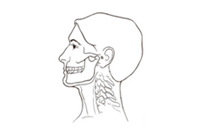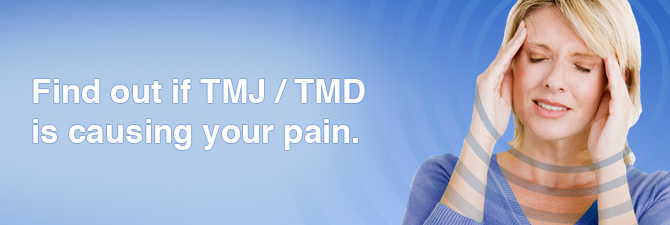San Antonio, Texas
Do You Hear Popping When You Chew?
Hearing a pop or a click when you chew can be a sign of problems with the jaw joint. To be more precise, the temporomandibular joint (TMJ). You might have what is known as TMD (temporomandibular joint disorder). Unfortunately, TMD can affect your ability to eat, chew, swallow, speak, breathe and make facial expressions. Place one hand on each side of face in front of your ears. Now, open and close your mouth. As you feel the joints moving, you’ll understand why they can cause so much trouble when they are out of alignment or the muscles and ligaments get too tight, or damaged.
The TMJ is a ball-and-socket joint, and like all joints, cartilage ideally serves as a cushion between the bones. If your bite is misaligned, that can put a strain on the TMJ and lead to other problems such as:
- Limited ability to open the mouth
- Cracking or popping when opening or closing the mouth, or chewing
- Headaches
- Pain in the teeth, jaw, face, neck, shoulders or back
- Worn, broken or cracked teeth
- Sensitive or painful teeth
- Ringing in the ears
What Exactly is TMJ?
Keep in mind that no pain in the jaw joint or muscles should be considered normal. You should be concerned if pain continues, gets worse or spreads. If that happens, you need to seek medical attention as soon as possible. If your jaw is locked in one position, and you can’t open or close your mouth, you need to get the emergency room immediately.
If your dental practitioner determines that your symptoms are indications of TMJ/TMD, he or she may recommend any of the following treatment options:
- Realignment of the jaw joint through surgery if damage was due to a blow to the jaw
- Realignment of the jaw joint through the use of custom-made dental appliances
- Crowns or braces to help reshape or realign the teeth
Leave the popping to your chewing gum! If you hear any other type of popping when you chew, please contact our San Antonio dental office as soon as possible and find out what is really going on before it gets worse.

Describe Your TMJ
Printable Form (PDF)
To help us better understand your specific pain points and determine the ideal treatment, please print this form. Circle all symptoms that apply to you and bring it to your TMJ consultation.



